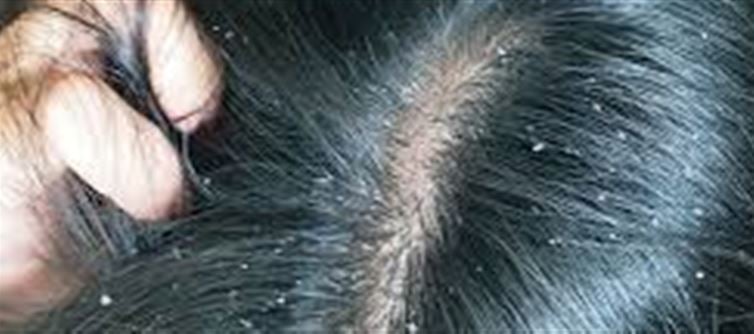
When Vansh Gulati was prescribed a shampoo containing coal tar for his dandruff treatment, his first reaction was understandable—coal tar in shampoo sounded a little alarming at first. After all, coal tar is often associated with industrial uses, such as in paving roads, and is even a known carcinogen in high doses. So, it’s natural to question: is coal tar in dandruff shampoos really safe?
In this article, we break down the benefits and potential risks of coal tar in shampoo, helping you decide whether it’s the right choice for treating your dandruff.
1. What is Coal Tar and How Does It Help with Dandruff?
Coal tar is a thick, dark liquid that’s produced as a byproduct of coal processing. It’s known for its medicinal properties and has been used for over a century to treat various skin conditions, including psoriasis, eczema, and seborrheic dermatitis—the condition often responsible for dandruff.
The active ingredient in coal tar helps:
Slow down skin cell turnover: By reducing the rate at which skin cells are produced, coal tar helps control the flaky, scaly build-up on the scalp that leads to dandruff.
Reduce inflammation: Coal tar has anti-inflammatory properties that can help soothe the irritated skin on your scalp.
Control itching: The soothing effects of coal tar help reduce the itching that often accompanies dandruff.
2. Is Coal Tar Shampoo Safe to Use?
While coal tar shampoos are effective at treating dandruff and other scalp conditions, there are some safety concerns to keep in mind:
Short-Term Use: For most people, coal tar shampoos are safe when used as directed. Typically, these shampoos are used a few times a week to manage dandruff, and they are considered effective for short-term treatment.
Potential Side Effects: Some individuals may experience mild side effects, including:
Scalp irritation or dryness.
Allergic reactions (though rare).
Staining: Coal tar can stain skin, nails, and clothing, so it’s essential to rinse thoroughly after use.
Sun Sensitivity: Coal tar can make your skin more sensitive to sunlight, increasing the risk of sunburn. It’s advised to avoid direct sunlight after using coal tar shampoo or to apply sunscreen if you’re going out in the sun.
Long-Term Use and cancer Risk: One of the biggest concerns with coal tar is its potential connection to cancer. Prolonged exposure to high levels of coal tar has been linked to an increased risk of skin cancer. However, the levels used in over-the-counter shampoos are generally considered safe for short-term use and have not been shown to cause cancer in the quantities found in these products.
3. How to Safely Use Coal Tar Shampoo
If you’ve decided to give coal tar shampoo a try for your dandruff, here are some tips to use it safely:
Follow Instructions: Always follow the instructions on the shampoo label. Most coal tar shampoos recommend using the product 2-3 times a week for the best results.
Limit sun Exposure: Since coal tar can increase sun sensitivity, avoid sun exposure immediately after shampooing your hair or use sunscreen if you're heading out.
Monitor for Side Effects: If you experience any irritation, redness, or excessive dryness, it may be best to reduce use or discontinue the product. Consult with a healthcare provider if needed.
Consider Short-Term Use: Limit your use of coal tar shampoo to short bursts when your dandruff flares up. Long-term daily use is generally unnecessary and may increase the risk of side effects.
4. Alternatives to Coal Tar Shampoos
If you're not comfortable with the idea of using a coal tar shampoo, there are plenty of other options available for treating dandruff, including:
Zinc Pyrithione: This anti-fungal ingredient is found in many dandruff shampoos and can help combat the yeast that causes dandruff.
Salicylic Acid: Helps exfoliate dead skin cells and prevent flakiness.
Ketoconazole: A potent antifungal that can help reduce dandruff caused by fungal infections.
Tea Tree Oil: Known for its natural antifungal and antiseptic properties, tea tree oil can help reduce dandruff and soothe the scalp.
5. When to Consult a Dermatologist
If your dandruff persists despite using coal tar shampoos or other over-the-counter treatments, it’s a good idea to consult a dermatologist. Sometimes, stubborn dandruff may indicate an underlying condition, such as psoriasis or seborrheic dermatitis, which may require a more targeted treatment plan.
6. Final Thoughts: Is Coal Tar the Right Choice for You?
In summary, coal tar shampoo is a highly effective treatment for dandruff, especially for those dealing with more severe or persistent flaking. While it is generally considered safe for short-term use, it’s essential to be mindful of its potential side effects, including skin irritation, sun sensitivity, and long-term cancer risk with excessive use.
If you're comfortable with its usage and follow the safety guidelines, coal tar shampoo can be a great solution for dandruff. However, if you prefer a gentler, alternative approach or have concerns about the safety of coal tar, there are several other dandruff-fighting ingredients to explore.
Ultimately, the key is finding the right treatment for your scalp and skin type, and if you're ever in doubt, consulting with a healthcare provider is always a good idea.
Disclaimer:
The views and opinions expressed in this article are those of the author and do not necessarily reflect the official policy or position of any agency, organization, employer, or company. All information provided is for general informational purposes only. While every effort has been made to ensure accuracy, we make no representations or warranties of any kind, express or implied, about the completeness, reliability, or suitability of the information contained herein. Readers are advised to verify facts and seek professional advice where necessary. Any reliance placed on such information is strictly at the reader’s own risk..jpg)




 click and follow Indiaherald WhatsApp channel
click and follow Indiaherald WhatsApp channel